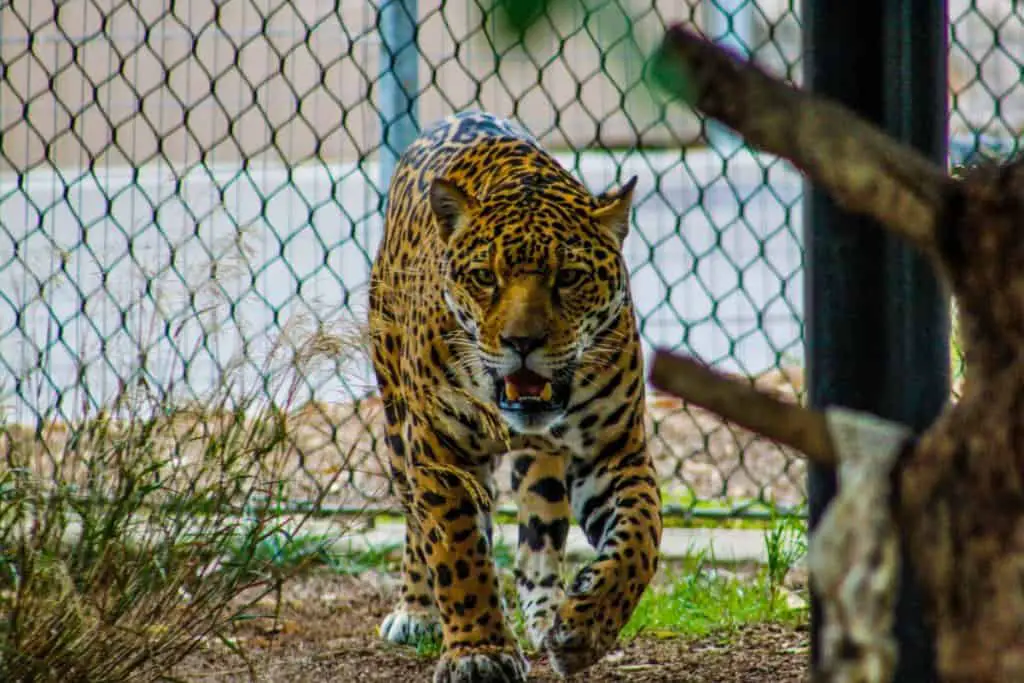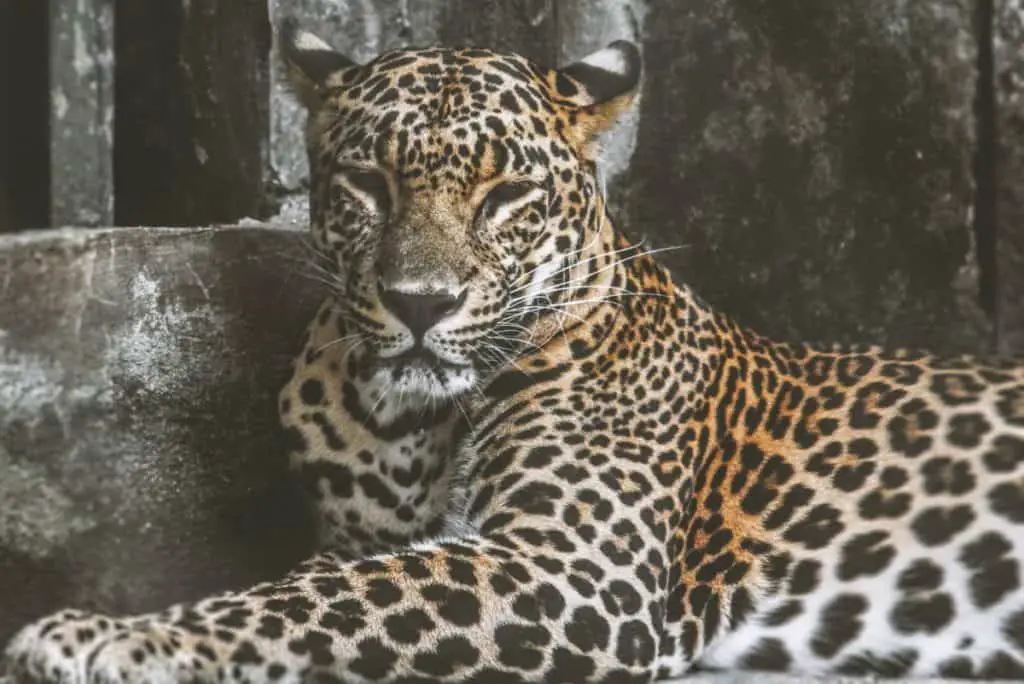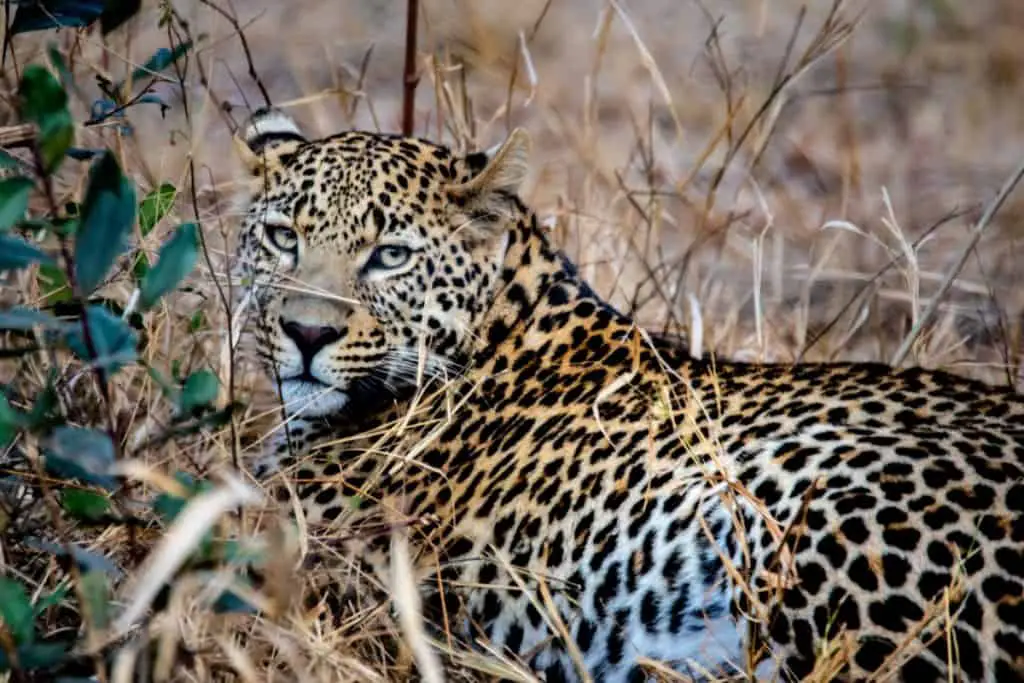
If you are interested in finding out whether leopard meat can be eaten by humans then you’ve come to the right article.
As, in this article, you’ll find the answer to this question, and also after you’ve read the answer to the main question then I’ll continue covering a few more closely related questions that will, piece by piece, extend your knowledge even more.
I hope you learn a lot from the provided information.
Can You Eat Leopard Meat?
Humans can eat leopard meat though it is extremely rare that humans do.
There are no serious risks or safety issues associated with its consumption as long as the meat is properly prepared and cooked, or does not contain any parasites but the practice is illegal in some countries and is considered ethically questionable in others.
Aside from being endangered, the leopard is an obligate carnivore that produces nitrogen-rich metabolites which may make its meat less palatable than other types of big game.
What Does Leopard Meat Taste Like?
The taste of leopard meat has been described as fishy, similar to canned tuna with a pungent smell and a fatty pork-like texture.
It also tastes a bit like pork loin and it does not taste like chicken meat.
This unusual flavor profile is likely due to the animal’s carnivorous nitrogen-rich diet.
The nitrogen metabolites in a leopard’s body affect the way its meat tastes and smells which is one of the main reasons why it’s not a popular food choice even in countries where consuming it is legal.
Does Leopard Meat Taste Good?
Of the small percentage of people who have eaten leopard, most say they wouldn’t eat it a second time.
It’s described as surprisingly fishy and much less like big game meat such as venison or buffalo than one might expect.
Obligate carnivores like leopards and other big cats consume very little plant matter, they instead subsist on meat which floods their muscles with nitrogen metabolites and gives their flesh a pungent smell and flavor.
Some people claim the taste of leopard meat is closest to a combination of fatty pork and commercial cat food.

Is It Safe to Eat Leopard Meat?
There are no specific food safety issues or health risks associated with consuming leopard meat.
As with all meat products though, they must be cooked with care at a temperature high enough to neutralize parasites and pathogens.
There is a small risk of food poisoning if the meat has not been stored and cooked correctly.
But there are no dangers specific to eating leopard and no food safety precautions you shouldn’t already be practicing when preparing and cooking meat products.
It is illegal to eat leopard meat in some countries though due to the animal’s endangered status.
If planning to try leopard meat in an approved region then you should make sure that it’s cooked by a licensed restaurant with the required food hygiene certification.
Can You Eat Big Cats?
There are no serious food safety issues associated with consuming big cat meat.
Still, it’s a rare practice because many big cat species are critically endangered.
This means eating these animals is illegal in some countries and, even when it is permitted, it tends to be strongly discouraged.
Despite this, lion and tiger meat can sometimes be found on exotic menus around the world.
Both are more common than leopard meat which is much harder to hunt and less palatable.
One big cat that is not endangered and which is considered a pest by some in North America is the cougar.
Therefore, hunting cougars is permitted in thirteen U.S states.
Eating cougar meat is not unusual in these regions as well.
Do Lions Eat Leopards?
Lions are known to hunt and eat leopards in certain circumstances.
However, it is an unusual event because leopards are not a nutritionally rich food source.
A lion would need to consume around ten times as many leopards as buffaloes to meet its energy requirements.
Lions sometimes eat leopards when their preferred food sources are scarce.
They kill many more leopards than they eat because rival cats are a threat to their dominance.
A lion is much more likely to attack a leopard for territory than food.
Do Leopards Eat Other Leopards?
Leopards eating other leopards are rare but there are some recorded instances of cannibalism within this species.
As with other big cats, violent disputes can occur when older, established males feel threatened by younger leopards.
In some rare cases, older males attack and cannibalize younger leopards as a show of dominance and to protect their territory.
The only recorded instances of a leopard killing another for food have occurred because the animal could not find an alternative food source.

What Eats A Leopard In the Rainforest?
The tiger is the only species in the rainforest capable of killing and eating a leopard.
It’s a rare occurrence and tends to happen because the tiger has already killed the leopard during a territorial dispute and because wasting a meal goes against its predatory instincts.
It is uncommon for rainforest tigers to hunt leopards for food.
Leopards are excellent at climbing trees and difficult to track due to their nighttime hunting patterns.
Humans are instead a much bigger threat to leopards living in the rainforest.
A very small number may be killed for food but the majority will be shot by poachers or killed indirectly by the consequences of logging and the destruction of natural habitats.
Which Animals Will Eat Leopards?
Several large predators are capable of killing leopards in the wild.
Some, such as lions, tigers, and hyenas, have been known to eat leopards occasionally, but it’s a rare occurrence.
Big cat species hunting other big cat species is rarely done for food and is more likely a consequence of territorial disputes and clashes over breeding rights.
Big cats tend to steer clear of one another unless their survival needs bring them into proximity.
This is especially true for leopards who typically hunt at night and sleep high up in trees during the day.
This helps them avoid other predators who might be struggling to locate food and are not picky about what they’re willing to kill and eat.
Hyenas, coyotes, and painted dogs are scavenger species that are unlikely to hunt a healthy leopard for food.
However, they may kill and eat an injured leopard or scavenge from a fresh carcass if they encounter one in the wild.
